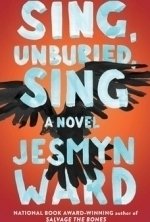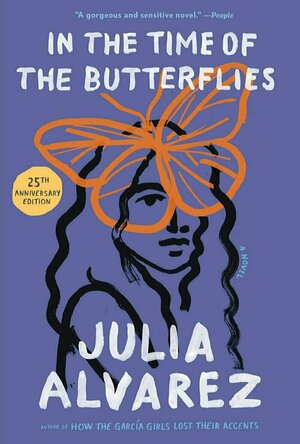Search
Search results
Suswatibasu (1703 KP) rated Sing, Unburied, Sing in Books
Oct 3, 2017
A Toni Morrison novel updated for modern times
This is no doubt a modern day version of reading a Toni Morrison novel. From the magical realism aspect to social issues affecting African Americans, this novel is both haunting and almost poetic.
The story follows a family on their way to a prison, in which the children's white father is due to be released. The teenage boy and his three year old sister are mostly dependent on one another as well as their grandparents Pop and Mam. The mother Leonie is absent, and rather aloof in their upbringing, forcing her son, Jojo to bring up his kid sister. In between are disturbing stories featured in flashbacks and ghostly apparitions, The novel explores interracial relationships, police brutality and even post traumatic stress disorder to a degree.
While it can seem haphazard, going back and forth in time, and random narratives appearing throughout, it leaves the reader with a sense of unease and despair at the violent nature of society. A truly intriguing read.
The story follows a family on their way to a prison, in which the children's white father is due to be released. The teenage boy and his three year old sister are mostly dependent on one another as well as their grandparents Pop and Mam. The mother Leonie is absent, and rather aloof in their upbringing, forcing her son, Jojo to bring up his kid sister. In between are disturbing stories featured in flashbacks and ghostly apparitions, The novel explores interracial relationships, police brutality and even post traumatic stress disorder to a degree.
While it can seem haphazard, going back and forth in time, and random narratives appearing throughout, it leaves the reader with a sense of unease and despair at the violent nature of society. A truly intriguing read.
Veronica Pena (690 KP) rated In the Time of the Butterflies in Books
Jan 25, 2020
Oh my goodness, this book. I am simultaneously at a loss for words and still have so much to say. My first inclination after reading this book is disappointment. Not in the writing or the story itself, but in me, actually. I am Dominican. Though I was born in the United States, I speak Spanglish - definitely more English than Spanish - and I've never been to the DR, I still felt this deep disappointment in myself. For not knowing my own history. I'm a first-generation American. My father was born in Santo Domingo and as a product of my circumstances, I don't know enough about my family's native country. And in a large way, that's on me. It's not like I'm incapable of learning, I'm 20 years old and I live in the digital age, for goodness sake. I don't know if I have any sort of excuse, and even if I did, I'm not sure it's a good one. But regardless, the disappointment is there.
This book gave me a connection. A connection to the history, to the language, to the land - one I didn't have before. As I moved through the novel and became familiar with Dedé, Minerva, Patria, and María Teresa, I found bits of myself in each of them. I found myself talking to them as if I knew them or they were my friends, wanting to provide them comfort, advice, a swift kick in the butt when I thought they needed more of a push. I wish I could truly put into words all the things this novel did for me and made me feel. I'm not sure if I'll ever be able to find them.
What I loved most about this story is the truth in it all. Trujillo was a dictator and under his regime, the DR fell apart. I loved that the Mirabal sisters were real and that while their story was one worth telling, the one in this book was fictionalized but still rang true in some aspects. I loved that their story was told from all four of their perspectives, not just Dedé, as the survivor.
I think this novel is one that should be read by many, and I think this story - one of the Mirabal sisters - is one that should be shouted from as many rooftops as possible.
"The function of freedom is to free someone else." - Toni Morrison
This book gave me a connection. A connection to the history, to the language, to the land - one I didn't have before. As I moved through the novel and became familiar with Dedé, Minerva, Patria, and María Teresa, I found bits of myself in each of them. I found myself talking to them as if I knew them or they were my friends, wanting to provide them comfort, advice, a swift kick in the butt when I thought they needed more of a push. I wish I could truly put into words all the things this novel did for me and made me feel. I'm not sure if I'll ever be able to find them.
What I loved most about this story is the truth in it all. Trujillo was a dictator and under his regime, the DR fell apart. I loved that the Mirabal sisters were real and that while their story was one worth telling, the one in this book was fictionalized but still rang true in some aspects. I loved that their story was told from all four of their perspectives, not just Dedé, as the survivor.
I think this novel is one that should be read by many, and I think this story - one of the Mirabal sisters - is one that should be shouted from as many rooftops as possible.
"The function of freedom is to free someone else." - Toni Morrison

